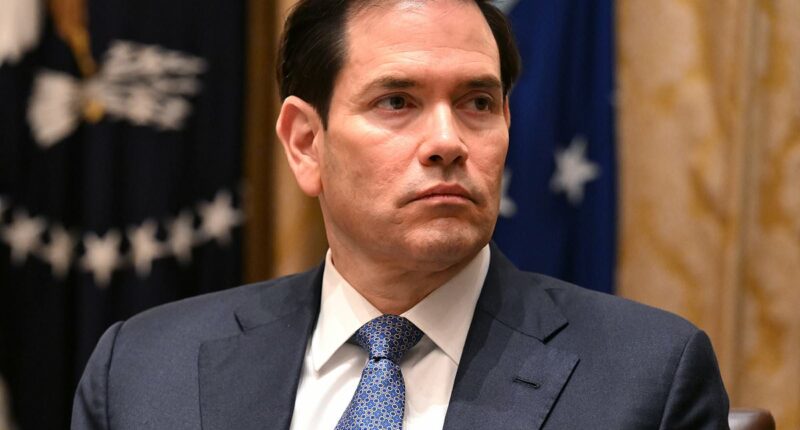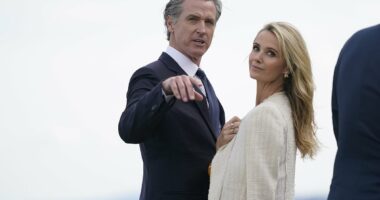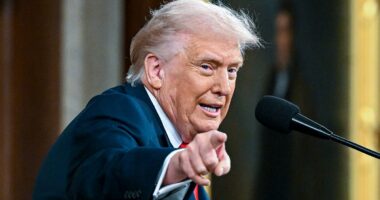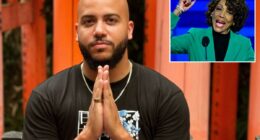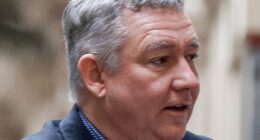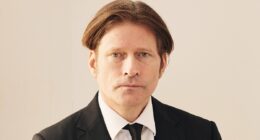Share this @internewscast.com

Last night, Marco Rubio found himself on the defensive after a bipartisan group of senators accused him of claiming that Russia authored the U.S. peace proposal for Ukraine. The U.S. Secretary of State has refuted these claims, labeling them as “blatantly false.” This controversy poses a potential threat to President Trump’s efforts to finalize a peace deal this week. In a rare move, Rubio suggested online that the senators might have misunderstood him, despite their assertion that he was their source for the information.

The Secretary of State reiterated that the peace proposal originated from Washington, despite facing criticism in Europe for its perceived leniency towards Moscow. According to the White House, the 28-point peace plan, which was widely leaked, was developed over a month by Rubio, Trump envoy Steve Witkoff, and with input from both Ukrainian and Russian parties. This plan concedes to several Russian demands that Ukrainian President Volodymyr Zelenskyy has repeatedly rejected, including ceding significant portions of territory.

President Trump aims for Ukraine to accept the plan by the end of next week. “This administration was not responsible for this release in its current form,” stated Republican Senator Mike Rounds from South Dakota at a security conference in Canada, indicating that the proposal should be a starting point. Rounds noted that the document seemed as if it “was written in Russian to begin with.” The senators reported that Rubio contacted some of them while en route to Geneva for discussions on the plan. Independent Senator Angus King from Maine mentioned that Rubio described the plan as “not the administration’s plan” but rather a “wish list of the Russians.”

The bipartisan group of senators, who are veteran legislators and among those most focused on foreign relations, stood together at the press conference as they relayed Rubio’s message on the call. Rubio, who serves as both national security adviser and secretary of state, was expected to attend a meeting in Geneva on Sunday to discuss Washington’s proposal as part of a U.S. delegation, according to a U.S. official who was not authorized to publicly discuss the American participants before the meeting and spoke on condition of anonymity.

“The peace proposal was authored by the U.S. It is offered as a strong framework for ongoing negotiations,” Rubio posted on X. “It is based on input from the Russian side. But it is also based on previous and ongoing input from Ukraine,” Rubio wrote. Tommy Pigott, a State Department spokesperson, said the senators’ account was “blatantly false.”

A senior Trump administration official, who insisted on anonymity to detail internal discussions, noted Saturday night that the White House has consistently maintained that the plan was authored by the U.S. but included input from Russians and Ukrainians. The official said the plan had always been considered by the administration as a helpful place to start continued negotiations with an eye toward working to a more lasting peace plan.

The senators earlier Saturday said the plan would only reward Moscow for its aggression and send a message to other leaders who have threatened their neighbors. “It rewards aggression. This is pure and simple. There´s no ethical, legal, moral, political justification for Russia claiming eastern Ukraine,” King said during a panel discussion at the Halifax International Security Forum in Canada. Putin welcomed the proposal late Friday, saying it “could form the basis of a final peace settlement” if the U.S. can get Ukraine and its European allies to agree.

Zelenskyy, in an address, did not reject the plan outright, but insisted on fair treatment while pledging to “work calmly” with Washington and other partners in what he called “truly one of the most difficult moments in our history.” In its 17th year, about 300 people gather annually at the Halifax International Security Forum held at Halifax´s Westin hotel. The forum attracts military officials, U.S. senators, diplomats and scholars but this year the Trump administration suspended participation of U.S. defense officials in events by think tanks, including the Halifax International Security Forum.

A large number of U.S. senators made the trip this year in part because of strained relations between Canada and the U.S. Trump has alienated America´s neighbor with his trade war and insistence that Canada should become the 51st U.S. state . Many Canadians now refuse to travel to the U.S. and border states like Shaheen´s New Hampshire are seeing a dramatic drop in tourism.
